5 Open Source Apps You Can use for Seamless File Transfer Between Linux and Android
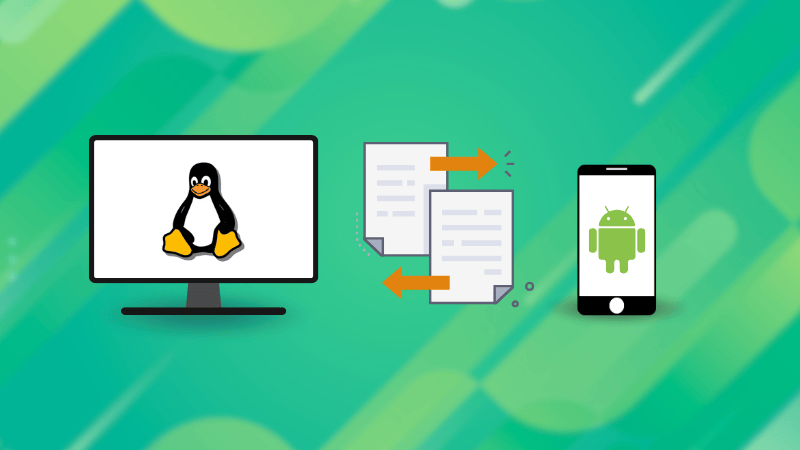
Wireless file transfers are incredibly convenient, especially between Linux and Android devices. No cables, no manual configuration needed. Just quick transfers from one device to another using your local network.
I know that it is faster to transfer files, specially huge ones, via cable. But if your library has thousands of photos and videos, it takes several minutes to load them.
When you want to share just a few selected photos, it is easier to select on your phone and share them.
Now, instead of uploading the selected files to cloud servers or sending them via WhatsApp, open source alternatives offer a more direct and private approach to file transfers with no third party involved.
These tools are not only safer and faster but often more reliable than the aforementioned options.
Let me share a few such tools you can use for transferring files between Linux and your Android smartphones.
1. Packet: No non-sense, simple transfer
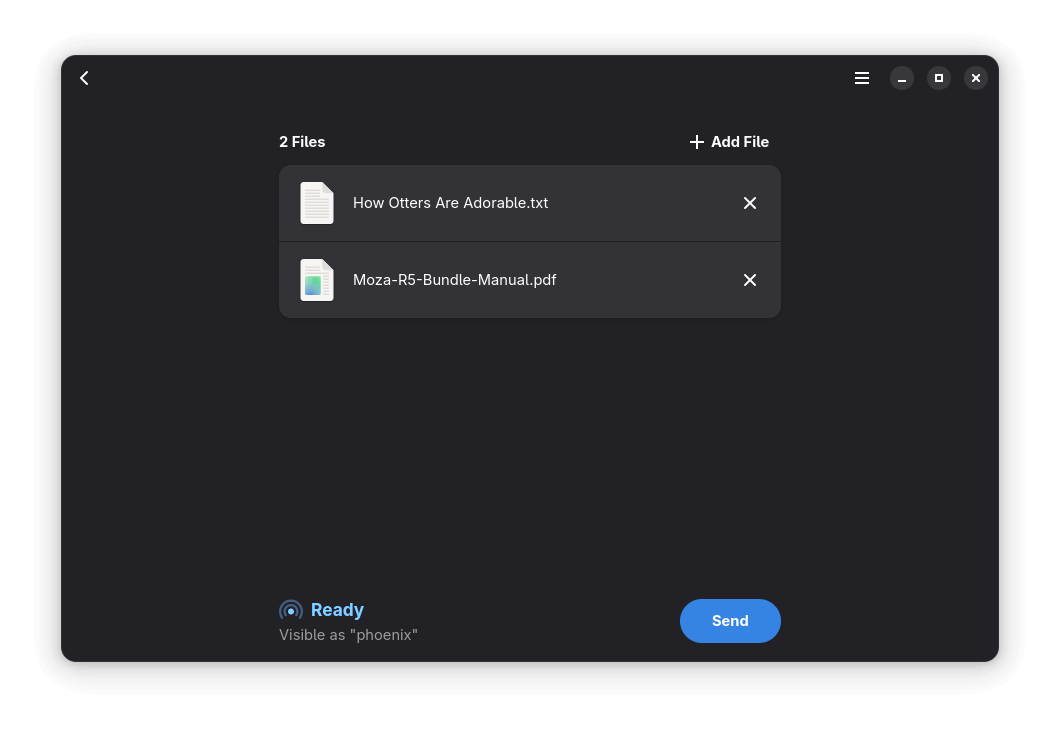
I begin this list with Packet, an app that makes transferring files effortless with its user interface and partial Quick Share implementation. With this, Android devices can easily connect to your Linux device over a wireless network.
It is designed with GNOME users in mind, offering a clean GTK interface and optional Nautilus integration. Once set up, your Linux machine should automatically appear in the device list when sharing files from Android and vice versa.
When I tested it, never did it fail a transfer, and each session completed quickly without the need for any manual IP configuration or pairing.
⭐ Key Features
- Can be integrated with Nautilus
- Works with Android Quick Share
- Local network transfers with no internet dependency
In case you are interested, here’s my full experience of using Packet app.
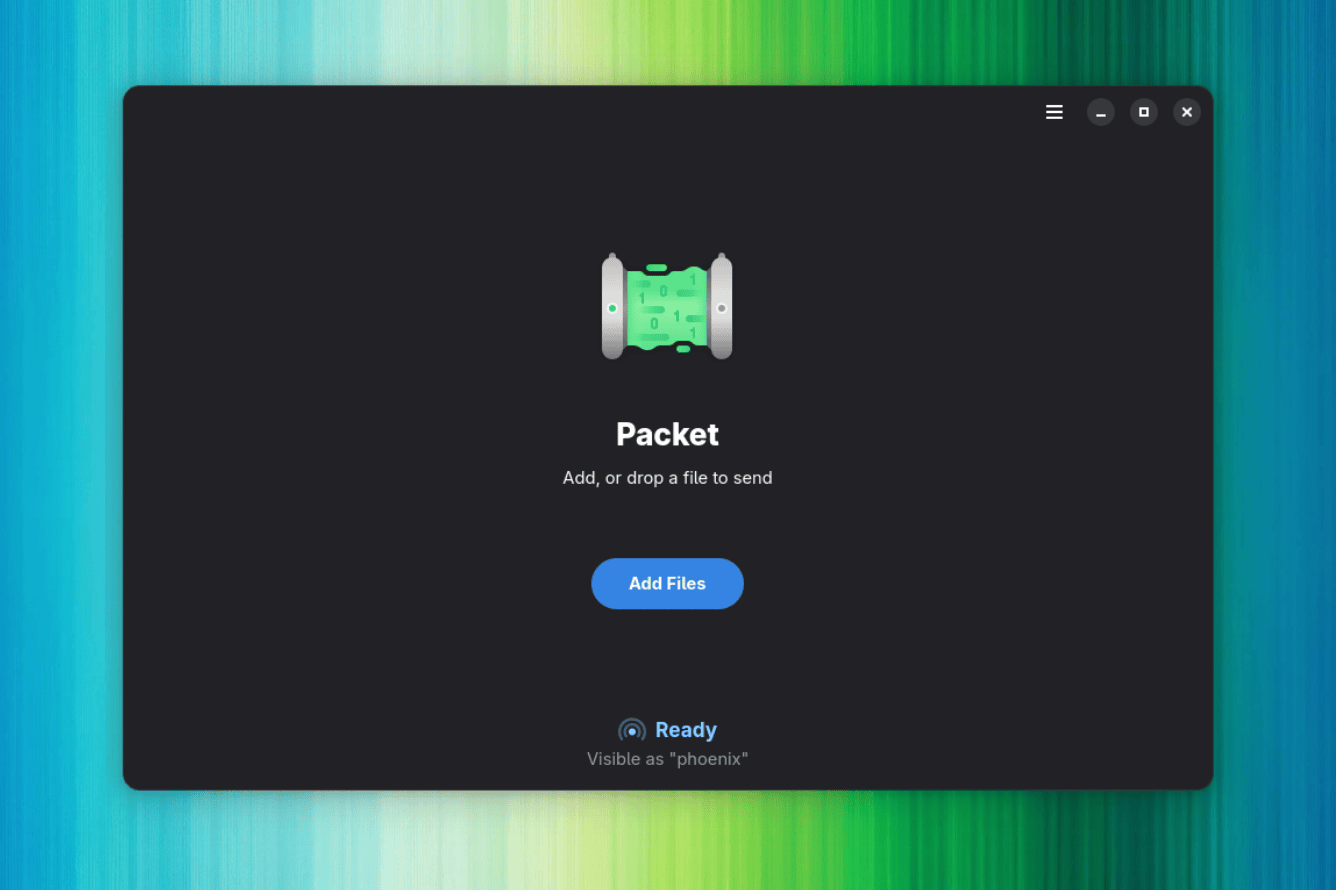
2. KDE Connect: Your phone companion
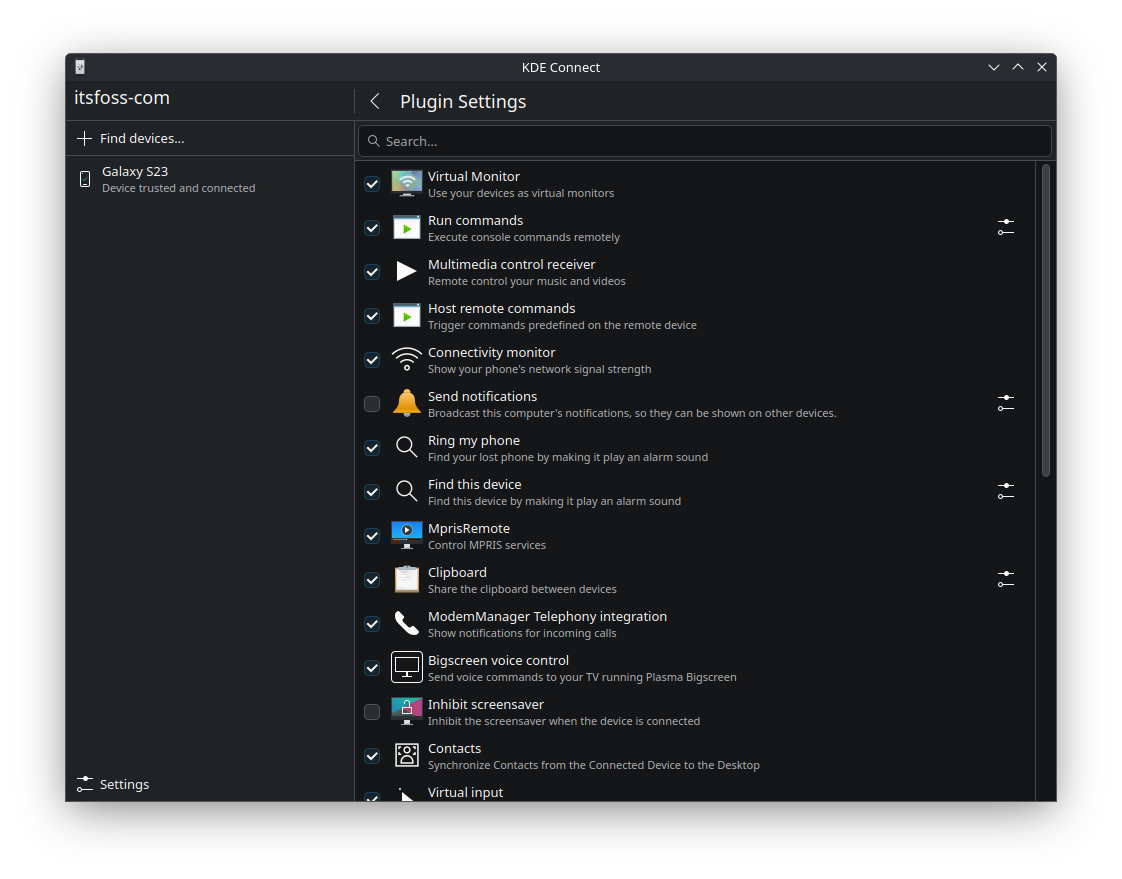
KDE Connect is a great fit for Linux distros that come with KDE Plasma, but it’s also usable on others. What’s cool is that it comes packed with features like file transfer, battery info, clipboard sharing, and more. You can turn each feature on or off so you’re not stuck with stuff you don’t need.
I have found that file transfers are pretty solid most of the time. Plus, it’s more than just for sending files. I can control music on my phone from my computer, get phone notifications right on my desktop, and even use my phone as a remote mouse or keyboard.
⭐ Key Features
- Phone battery level display on desktop
- Supports SMS messaging from desktop
- Ability to run commands remotely on your Linux computer
3. Syncthing: Sync (every) thing
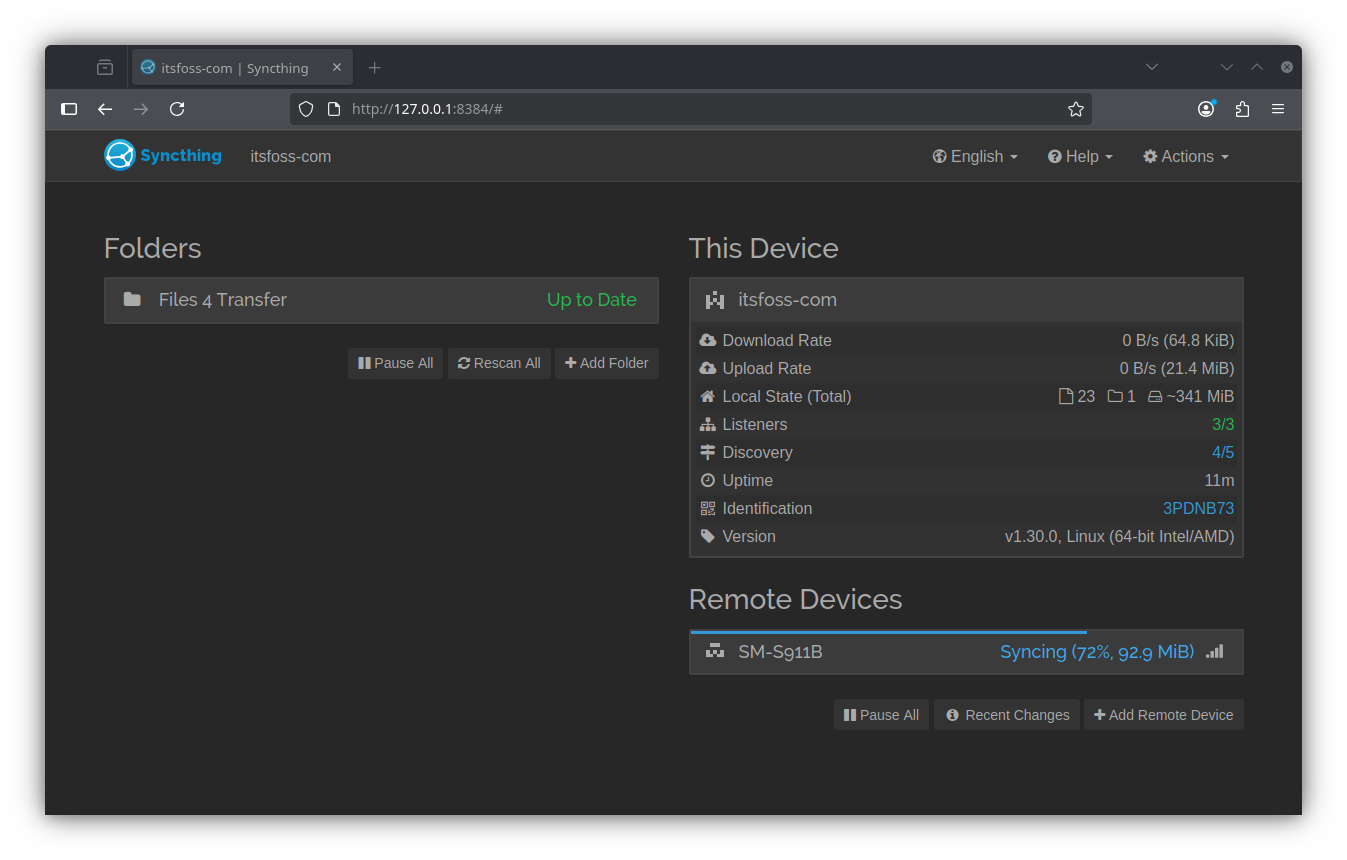
Syncthing is a powerful open source tool for syncing files across devices over your local network or the internet. It has a web-based interface that lets you manage your sync folders and devices from any browser.
Though, it is better suited for users who know their way around their Linux computer.
To sync files with Android, you will need a third-party app like Syncthing-Fork. Since Syncthing syncs entire folders rather than single files, I suggest creating a dedicated folder that stays empty until you drop files for transfer into it.
When configured correctly, transfers are fast and reliable, and the detailed sync status and logs help you keep track of what’s happening during syncing.
⭐ Key Features
- Syncs full folders with continuous updates
- Requires third-party Android app for syncing
- Web GUI for easy device and folder management
4. LocalSend: Alternative to AirDrop
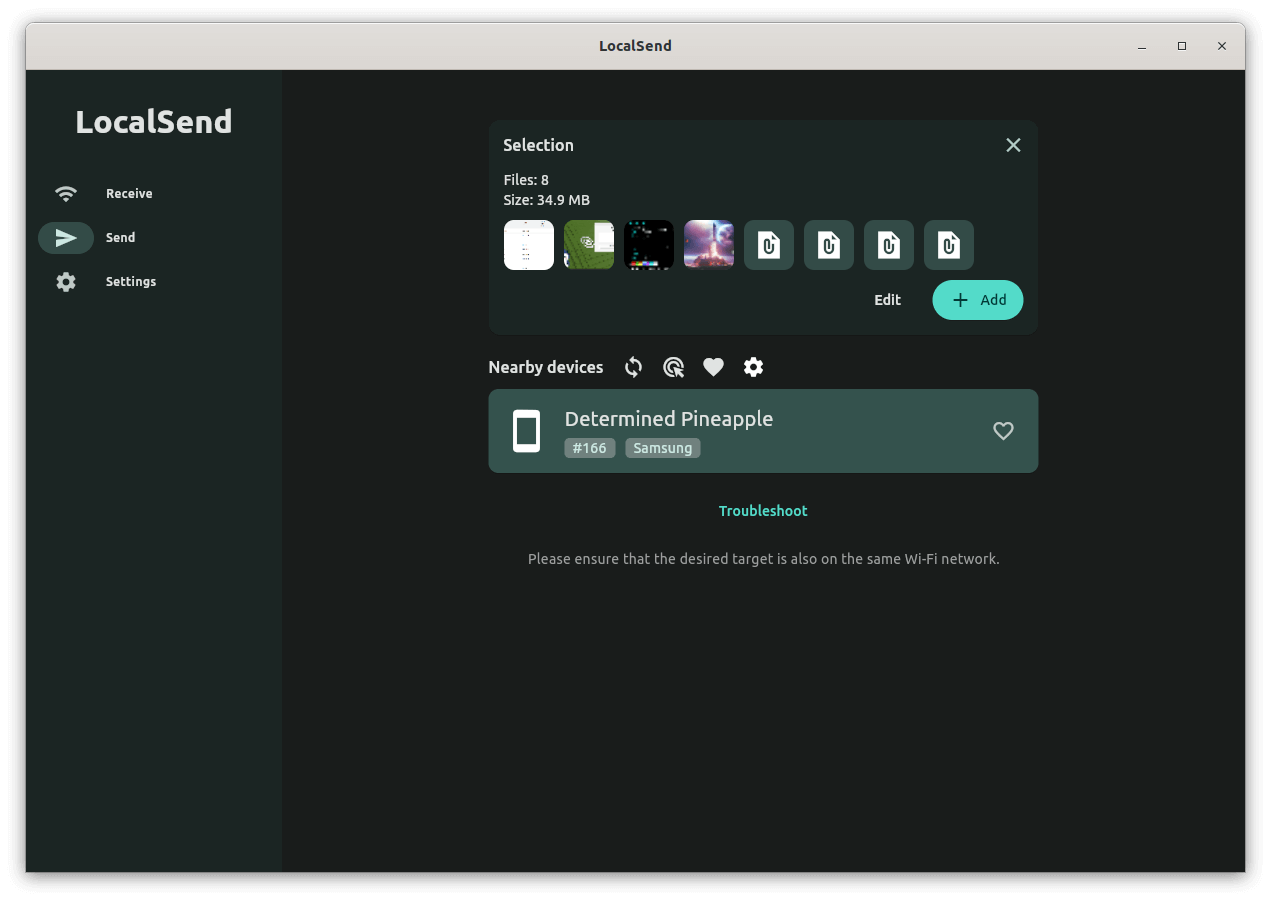
LocalSend is an open source app built for seamless, encrypted file sharing across devices over the same local network. It supports Linux, Android, Windows, macOS, and iOS, making it one of the most versatile cross-platform tools in this list.
You get a clean and user-friendly interface here, where devices are assigned randomized names to make them easy to identify before sending files.
I use LocalSend in my workflow to quickly transfer documents and images from my phone to my computer. The only minor inconvenience is that I need to disable the VPN on both devices for them to detect each other in the app.
⭐ Key Features
- Broad cross-platform support
- No internet, no tracking, no ads
- End-to-end encrypted file transfers

5. Warpinator: File sharing tool from Linux Mint team
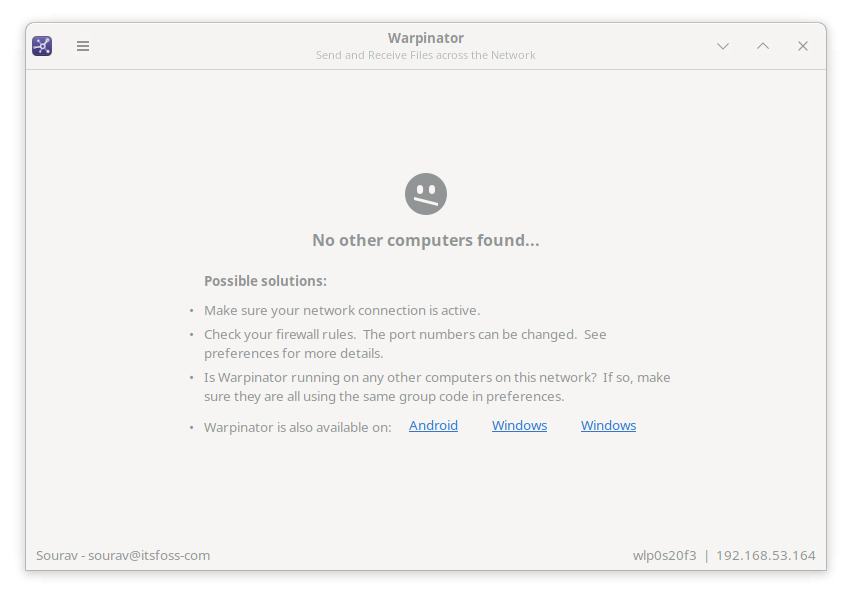
Developed by the Linux Mint team, Warpinator is an open source tool for easy file transfers over local networks. It’s simple to use but has some quirks. For example, to unlock all features, you need to enable Secure Mode. Without this, the app automatically exits after 60 minutes.
On Android, I had to rely on a third-party Warpinator client since there isn’t an official app yet. Connecting new devices can sometimes be a bit finnicky, requiring some troubleshooting before everything works smoothly, so keep that in mind.
⭐ Key Features
- Automatic device discovery over local network
- Simultaneous transfers with optional data compression
- Manual connections for restricted network environments
Bonus: GSConnect – GNOME’s Unofficial KDEConnect Cousin
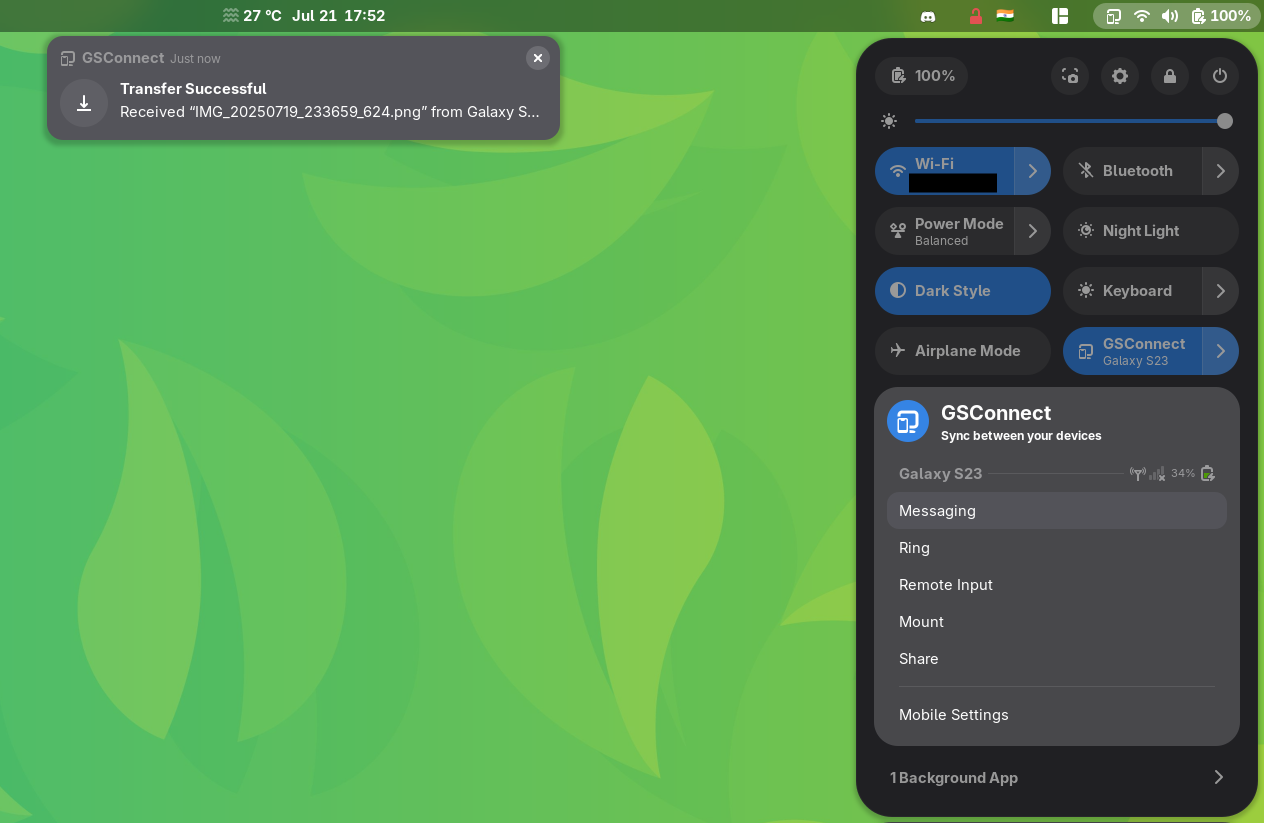
GSConnect is a shell extension based on KDE Connect that is built specifically for GNOME desktops. It works well with the KDE Connect Android app, providing most of the same features without needing to switch desktop environments.
I really like the multimedia controls because I can control any music or video playing on my Linux setup right from my phone. File transfers usually go smoothly, but occasionally when I send multiple files from Linux to Android, only one file is received and the rest vanish.
Other than this issue, GSConnect handles notifications, clipboard sharing, and more without problems.
⭐ Key Features
- Handy multimedia controls and notifications
- Full KDE Connect features on GNOME desktops
- Browser extension support for Chrome and Firefox
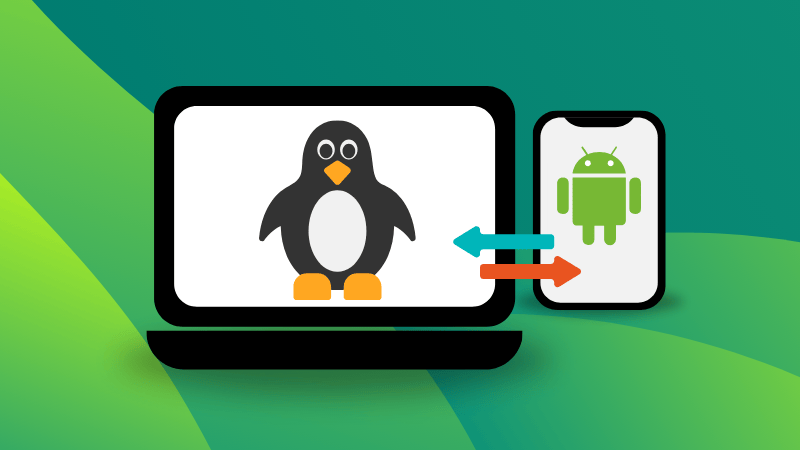
Conclusion
As you can see here, Packet and LocalSend are straight forward tools designed to primarily share files between your phone and Linux desktop. Warpinator can be used for sharing files between different desktop computers and operating systems, too.
KDEConnect and GSConnect are more feature rich as they integrate some of your smartphone features with your desktop.
Syncthing is a versatile, P2P file synchronization tool.
Now, that I have presented these options, it is up to you to explore and decide the tool you would like to use for sharing files from your phone to your Linux system.



